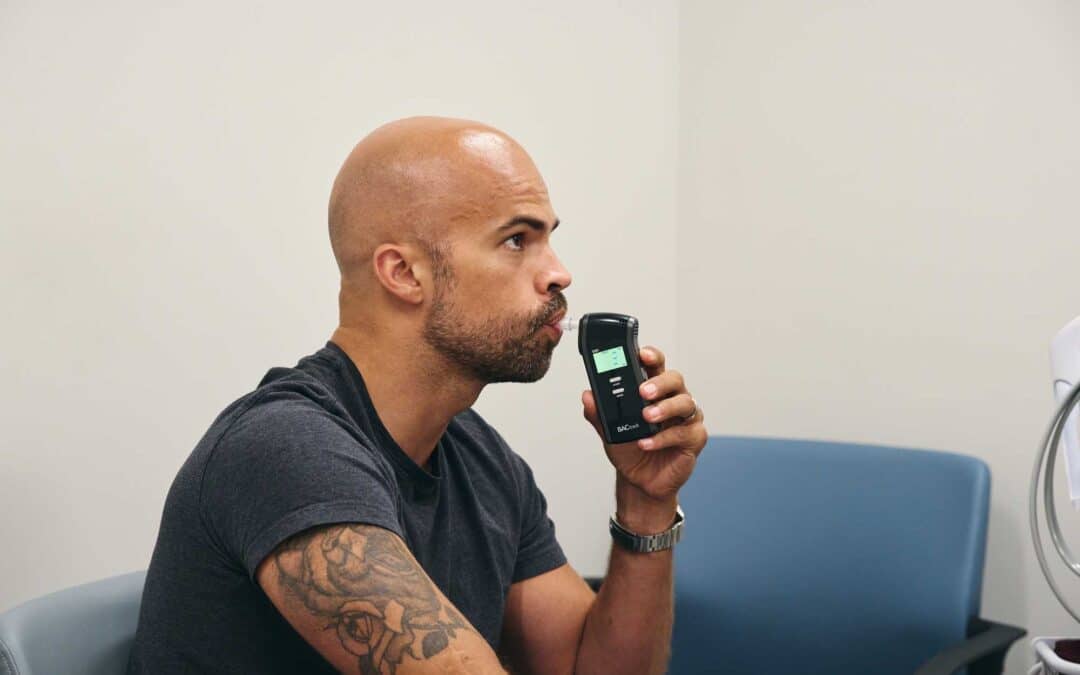The Dangers of Alcohol Withdrawal & The Importance of Medical Detox
Going through alcohol withdrawal can be tough, especially for those struggling with an alcohol use disorder. When someone who regularly drinks suddenly stops, their body can react with uncomfortable and sometimes dangerous symptoms. This process, called detoxification, is how the body gets rid of alcohol toxins.
When is Detox Necessary?
Knowing when detox is necessary means understanding how serious one’s relationship with alcohol is. For many people with alcohol use disorder, getting professional help becomes crucial.
A detox facility offers a structured environment where medical experts can keep an eye on withdrawal symptoms and manage them effectively.
Why is Identifying the Need for Detox Important?
Figuring out if detox is needed is essential because it ensures safety and boosts the chances of successful recovery.
Signs that professional assistance might be required include:
- Severe anxiety
- Tremors
- Hallucinations
People who have experienced complications like seizures or delirium tremens during previous withdrawal attempts should seriously think about seeking specialized care.
Benefits of Choosing Detox in a Controlled Setting
Deciding to go through detox in a controlled place not only reduces risks but also sets a solid groundwork for future recovery efforts.
Understanding Alcohol Withdrawal Symptoms and Timeline
Alcohol withdrawal is a physiological response that occurs when someone with alcohol dependence suddenly reduces or stops their intake. The symptoms of alcohol withdrawal can vary widely in intensity and type, reflecting the body’s struggle to regain balance after prolonged exposure to alcohol.
Common Symptoms of Alcohol Withdrawal:
- Anxiety: A heightened state of nervousness or worry is quite common during withdrawal.
- Insomnia: Difficulty in falling or staying asleep often plagues individuals undergoing withdrawal.
- Tremors: Shaking, particularly of the hands, is frequently observed as the body reacts to the absence of alcohol.
- Sweating: Excessive perspiration may occur as the body’s regulatory systems attempt to stabilize.
- Nausea and Vomiting: Digestive distress is another frequent symptom during this period.
These symptoms reflect how the nervous system, which has adapted to the presence of alcohol, reacts when it’s suddenly deprived of it.
Alcohol Withdrawal Timeline:
Understanding the timeline of alcohol withdrawal symptoms is crucial for recognizing and preparing for what might occur. Here’s a general overview:
- 6 to 12 Hours After Last Drink: Initial signs of alcohol withdrawal often start within this window. Anxiety, headaches, nausea, insomnia, and tremors begin to surface.
- 12 to 24 Hours Post Last Drink: Symptoms can intensify. Hallucinations—visual, auditory, or tactile—may occur but don’t usually indicate severe complications at this stage.
- 24 to 72 Hours Post Last Drink: This period often marks the peak severity of withdrawal symptoms. Individuals may experience increased heart rates, elevated blood pressure, fever, confusion, or even seizures. This phase requires close monitoring due to potential life-threatening complications such as delirium tremens (DTs).
The alcohol withdrawal timeline underscores the importance of awareness and readiness for these symptoms’ progression. Recognizing these signs early can be vital in deciding whether medical intervention or a detox facility might be necessary.
Understanding these symptoms and their timeline provides a foundation for making informed decisions about seeking help and planning for potential interventions if needed. This knowledge equips individuals with a clearer picture of what they’re experiencing and potentially what lies ahead on their path toward recovery.
Signs You May Need an Alcohol Detox Facility
Recognizing the signs of alcohol withdrawal syndrome is crucial in determining whether you need a detox facility. Severe symptoms can be a clear indicator that professional help is needed. These symptoms might include:
- Severe Anxiety and Tremors: Beyond mild nervousness, intense anxiety paired with noticeable shaking can signal the need for medical intervention.
- Hallucinations or Confusion: Experiencing hallucinations or confusion may indicate more serious conditions like delirium tremens.
- Seizures: A history of seizures during withdrawal increases the risk of complications and highlights the necessity for monitored detoxification.
Identifying these signs early can aid in seeking treatment options for alcohol withdrawal effectively. It’s essential to be aware of your own health history, especially if you have experienced complications before.
Medical evaluation plays a pivotal role in deciding if a detox facility is necessary. A healthcare professional can assess your symptoms and determine the best course of action. During this evaluation, they will consider factors such as:
- Your overall physical health
- Any previous withdrawal episodes
- The severity of your current symptoms
Understanding how to answer “How Do I know if I need an Alcohol Detox?” involves being honest about your symptoms and consulting with medical experts who can guide you through the process safely.
Risks of Home Detox vs. Professional Detox in an Alcohol Detox Center
Choosing to undergo alcohol withdrawal at home, without professional help, can lead to serious complications during detox. Attempting to self-manage withdrawal symptoms increases the risk of potentially life-threatening conditions such as seizures and delirium tremens. These severe reactions often stem from the body’s intense reaction to the absence of alcohol, a substance it has become dependent on.
Risks of Home Detox:
- Seizures: Without medical supervision, the likelihood of experiencing seizures increases significantly.
- Delirium Tremens (DTs): This severe form of withdrawal can cause confusion, shaking, hallucinations, and even heart complications.
- Unpredictable Symptoms: Home detox lacks the ability to quickly respond to rapid changes in physical or mental health.
The importance of medical supervision during detox becomes evident when considering these risks. An Alcohol Detox Center provides a structured environment where trained professionals monitor your health around the clock. This ensures that any complications are swiftly addressed.
Benefits of Professional Detox:
- 24/7 Medical Support: Constant monitoring helps manage symptoms and prevent complications.
- Medication Management: Clinicians administer medications like benzodiazepines and anti-seizure meds to alleviate withdrawal symptoms effectively.
- Emotional Support: Access to mental health support helps address anxiety and other psychological challenges during withdrawal.
In a clinical setting, medications play a crucial role in easing the withdrawal process. Benzodiazepines are commonly used due to their calming effects on the nervous system, reducing anxiety and preventing seizures. Additionally, anti-seizure medications are frequently administered to individuals at higher risk for seizure activity during detox.
Recognizing the risks associated with home detox highlights the value of seeking help from an Alcohol Detox Center like Liberty Health Services in New Hampshire. Emphasizing safety and support ensures a smoother transition through withdrawal, paving the way for long-term recovery success. For more information on rehab admissions, you can reach out to us at Liberty Health Services.
Ongoing Support After Detoxification: Preventing Relapse and Finding Help for Recovery from Alcohol Dependence
After completing the detox process, ongoing support is crucial to maintaining sobriety and preventing relapse. Therapy and support groups play a significant role in this phase, offering a structured environment for individuals to express emotions and address underlying issues related to alcohol use.
Engaging in therapy provides an opportunity to explore personal triggers and develop strategies for managing them. Cognitive-behavioral therapy (CBT) is often recommended, helping individuals reframe negative thought patterns that can lead to relapse. Additionally, support groups like Alcoholics Anonymous offer a community of peers who understand the challenges of recovery, providing encouragement and accountability.
Building effective coping mechanisms is essential in the journey toward long-term recovery. Here are some strategies:
- Mindfulness Practices: Techniques such as meditation can help manage stress and reduce cravings.
- Healthy Lifestyle Choices: Regular exercise and balanced nutrition contribute positively to mental health.
- Relapse Prevention Planning: Identifying high-risk situations and creating action plans can mitigate potential setbacks.
Committing to these practices enhances resilience against relapse and strengthens one’s ability to remain sober. By prioritizing counseling and support after detox, you lay a foundation for enduring recovery from alcohol dependence.
Liberty Health Services: Your Partner For Getting Through Alcohol Withdrawal
Choosing the right support during alcohol withdrawal is crucial. At Liberty Health Services, we specialize in providing comprehensive care tailored to your unique needs. Our experienced team is dedicated to helping you navigate the challenging journey of detoxification with confidence and peace of mind.
Why Choose Liberty Health Services?
- Expert Medical Supervision: Our facility offers 24/7 medical support, ensuring your safety and comfort throughout the detox process.
- Personalized Treatment Plans: We understand that every individual’s path to recovery is different. Our specialists develop customized treatment plans that address your specific symptoms and health history.
- Compassionate Care Team: Our staff is committed to fostering a supportive environment where you feel heard, respected, and empowered to take control of your recovery journey.
- Advanced Therapeutic Techniques: Utilizing evidence-based therapies, we equip you with effective coping mechanisms to manage cravings and reduce the risk of relapse.
Your recovery is our priority. At Liberty Health Services, we’re not just here to help you detox; we’re here to guide you towards a healthier, alcohol-free life. Reach out today and discover how our compassionate care can make a difference in your journey toward lasting sobriety.
For more information or to start your recovery journey with us, contact Liberty Health Services today. If you’re concerned about insurance coverage for our services, we also provide an insurance verification form for your convenience.


